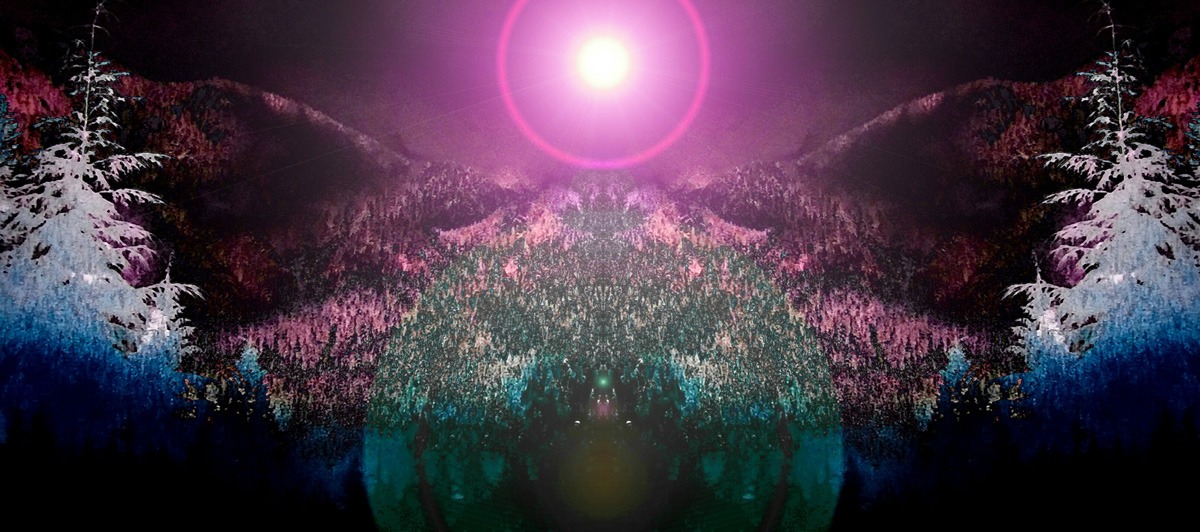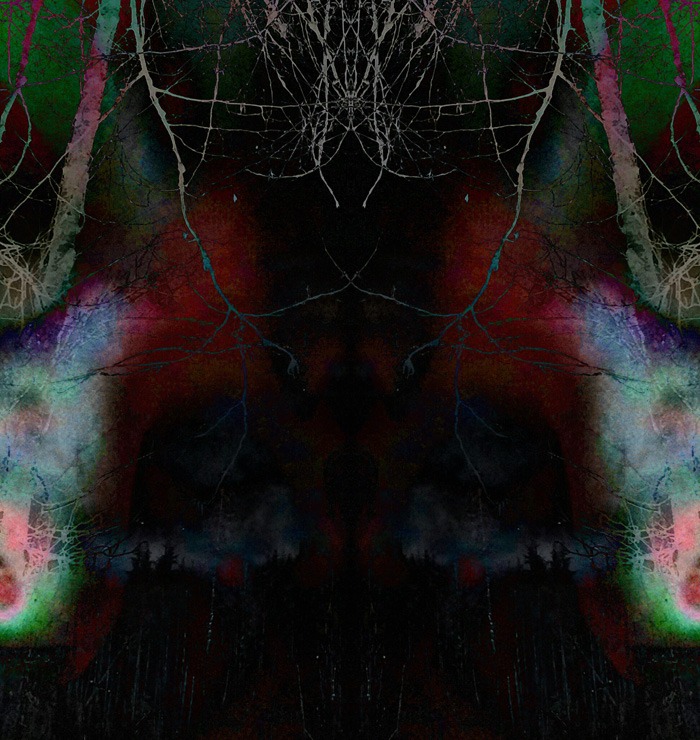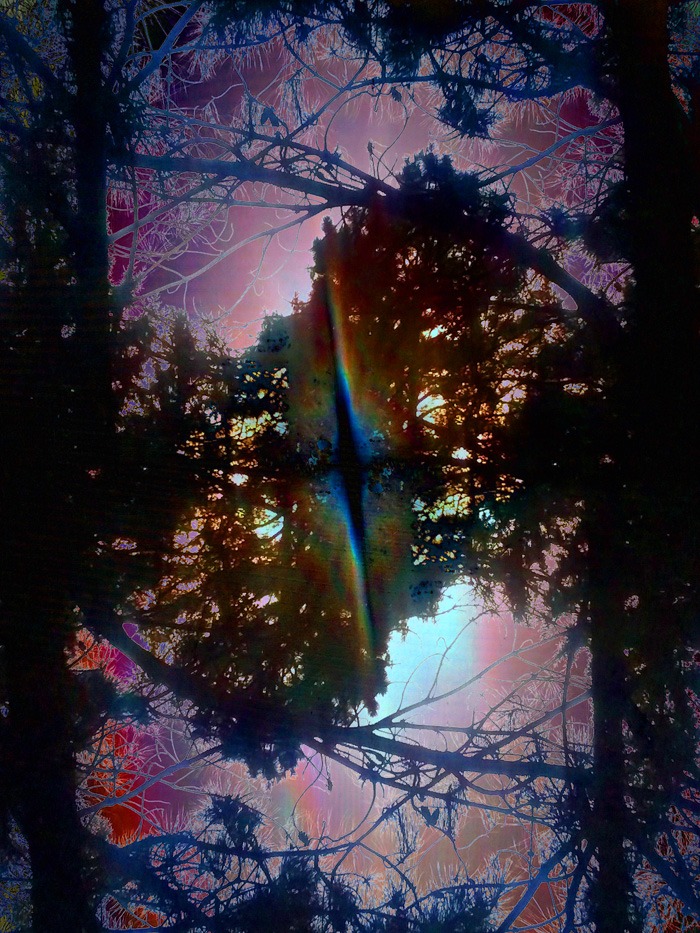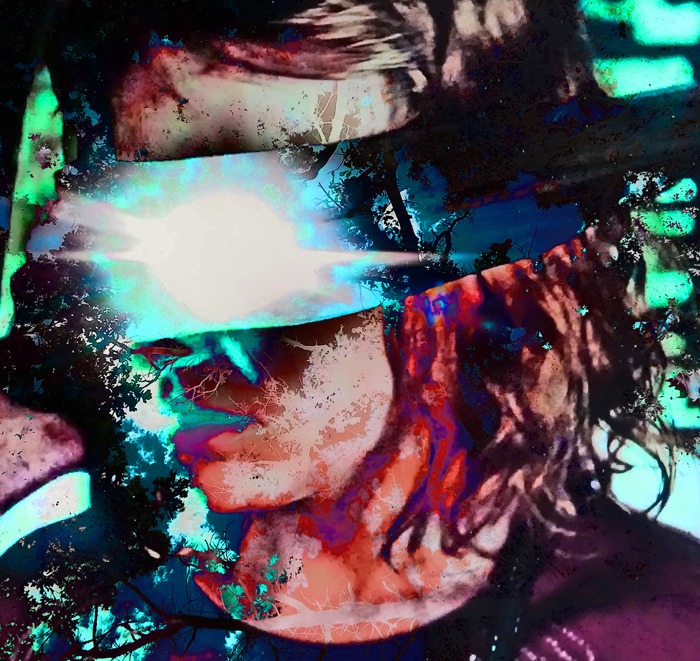
Solstice Spectres
Chris Green, a poet and photographic artist was previously featured in Niji Magazine. Chris was born and raised in the United States. As a child to a military family he moved around often. These experiences allowed him to learn first-hand about the cultures, the histories and the experiences of others from a diverse range of backgrounds. It is these unique experiences that Chris delves into through his work. His art explores the impulses of what it means to be human, both the good and the bad. Through his art he ponders the factors that make people who they are. We were fortunate to have caught up with Chris and interview him as we learn more about both the individual and the artist.
By Al Gord
Chris, I find that each artist has their own story behind their journey. What led you to becoming an artist?
My journey has been a little unconventional, for better or worse, I suppose that is up for debate. While I attended private school from Kindergarten to Grade 7, I took several art classes. I can say fairly vehemently that I did not enjoy those classes very much and I did not touch art for well over a decade. While science became my focus, I kept a keen eye for adventure and things I found to be beautiful. I will touch on this in a moment. When I arrived in college, I decided I wanted to dip back into art. I had come to the conclusion that I was not “good” at art but I still enjoyed it, so I took an art history class. Admittedly, I did not care too much about the history at the time, I had only wanted to see some of best things humans have created. I very much enjoyed French and Timepiece subjects, ironically. A few years later, I took part in a national psychologically based art study wherein trends would be identified between perceptions relating to colour, geometry, and light. My results came back and found that I had only two percent in common with my peers. At this point, I conceded, and thought, well, there is obviously something wrong with me. It is funny to look back on it now. I learned later that being exceptional is okay.
I think that in many ways, we as artists are different. We see the world differently, we express ourselves differently and we relate with others differently. How did this experience shape you as an artist?
During the same period of time, I took a creative writing class and wrote a novel and several poems, some of which were published though two contests funded by the National Endowments for the Arts and State Regional Art contests. It was during this time, I figured, okay, maybe I have a few good ideas, though, I still disregarded art. All the while, I kept my passion for things I found rare or inspirational. As I had mentioned in my original feature with Niji Magazine, I documented much of my adventures and trips with family and friends.
Having finished writing two novels, I thought, I would really like to create the book covers and any promotional pieces to ensure the spirit of the story was captured. And so began the spark or prismatic wave marrying my writing, with the cache of photographs I had taken. Once I explored the digital art programs that were becoming refined, I knew I had found something I deeply enjoyed and a media by which to realize my ideas. I took that new technology and pushed it to its limits, and even used techniques when the programming would break beyond its recommended parameters to accomplish the creation I looked to achieve.
Without giving away any of your secrets can you take us through the creation process be it techniques, vision, planning, and tools for a typical artwork of yours?
I try to encompass any technique I am aware of and interested in. Sometimes I will plan a poem and re-write it in my head for several weeks or months and use it for a piece of art created seemingly spontaneously over the course of an evening. The vice versa applies as well. The same goes for photography. I have found capturing a moment when inspired and not planned catches some very intricate details that are difficult to reproduce without feeling forced or simulated as opposed to genuine. At the same time I have thought to myself, “Oh, this mountain stream contains the slope angle and spacing I have been thinking of”, in a piece of art I had been building, and then I will grab the photograph and infuse it in to the creation.

Crown
You have already taken a novel approach to your media of choice, pushing the boundaries of the programmes that you use. You previously described your style as photography integrated with digital design. How would you describe your growth as an artist and how has this impacted the evolution of your style?
Much of the art I created before was done in a fashion similar to free writing. While working with this new technology, part of me felt constrained by the design, so I adapted to that by removing a majority of the planning and forethought while working in these systems and operated much on instinct. I think this accomplished some very cool things that others, as well as myself, have enjoyed. I still use this approach today at times, but I feel I am more focused on an objective and my exploration and operation within these systems is more refined. I guess you could say my palette, has grown as well. I still take photographs to this day, and work on commissions for people who want their photographs imbued with my style.
Your photographic art is incredibly unique. Are there certain artists who have inspired you or influenced your style?
Yes. Some of the most influential artists for me are spread across different media and sometimes do not remotely resemble my style or anything I would wish to create, but I still feel them at times in my creativity, whether it is a mood, a colour to match a song, or the smallest shape hidden in the corner of one of my pieces of art. People like Zdzisław Beksiński, Mozart, Marie Murr, Kanye West, Jean-Pierre Houël, H.R. Geiger, Picasso, Elon Musk, and Françoise Gilot.
That is an incredibly diverse range of talents from various fields. For me this diversity almost speaks to your unique style as well as the combining of the written word with your photography. For me, part of the appeal to your work are the interesting narratives behind each piece. What is the inspiration behind your writing and are all of the pieces interconnected or is each piece a story unto itself?
The inspiration is a wide encompassing distillation of multi-faceted ideas. I picture it like there is an electric hurricane in my lap and I will reach for an idea that I want to work with, but many other sparks come with it. I also have a fascination with double and triple speech, so I try to push the limits of saying multiple things at once. This is done in part to allow people to be free to see the art and writing as they wish and it keeps an overbearing me out of the picture. It also allows me to say things I or others would prefer discrete, yet I can still express myself and the commission pieces of folks who want their story told, but privately. I will sometimes write a succession of pieces that fit an overall story, such as the Below Basement 7-part series all with accordant art. I will also tell independent stories or events. I would say a slim majority of the work is part of a singular arching project.
Chris, you have previously mentioned that you wrote a couple of novels. Have they been published? If not, do you see re-working them or creating a new longer written piece, be it a novel, a novella or an epic poem set to your photography?
I am currently in the twelfth revision of the trilogy. I have gotten the go ahead to publish concurrently but I am going to be a bit of a perfectionist with this as it will likely be my only foray into novels. If I do pass away unexpectedly or fall irreparably ill in the coming years I have made arrangements for it to be published immediately. I do not plan on that happening, but if you are a fan and get bad news, be on the look-out for a huge goodbye with years of work put into it that you may enjoy. Again, knock on wood, I hope to release the trilogy on my own timeline. Right now, I would guess somewhere around 2024.
That is exciting news and something to look forward to. I know that for me, certain pieces have special meaning. Do you have a piece which you feel is especially rewarding or which has personal significance to you?
Dragon Eyes is the most popular so that is fun for me. In terms of personal depth, I’ve got a few coming up that are very close to my heart. It would be a toss-up between the new projects, Gifted Girls, Cobalt, and Classified Silence. It’s been fascinating to see the juxtaposition of the different types that people like and I am glad it is so varied.
What makes these new pieces so close to your heart?
They delve quite deep and near to some personal stories and passions I have found over the years. With the refinement of my techniques, I am excited to share some of these ideas in detail and a more ascribed vision and elucidation.
For those who are not immersed in the art world, it may be hard to understand the motivation behind being an artist. Why do you do what you do and do you believe that artists play a role in society?
In my opinion art is as important or integral to the human experience as is farming, building, and exercising. I have spent some time and spoke with some folks who are not connected to the art world, such as engineers, chemists, and physicists, and they often use art and creativity in their work. Things like designing a planetarium while listening to music or taking breaks and looking at a piece from Ronald Davis to figure out what would work and look best to seat people around a $2,000,000 crystal projection system. A consistent theme when talking with these successful folks is their connection to creativity when realizing their goals which on the surface look entirely discrete from art. It appears to me, art is like a nutrient to the human experience.
I know that we often talk about art being integral to the soul, but I love your notion that art is like a nutrient to the human experience. How has art nourished your experience?
Seeing beautiful and creative things is one of the pillars of my motivation to exist or do. I suppose we could bring in a psychologist sometime and delve into the why, which would probably be fun and strange at the same time, but I think for me personally there were times in life where art acted as a catalyst, a confidence, or reason. It also acts as an exponential feedback factor, meaning, to put it plainly, I function better when I am inspired and have art in in my life. That relates to my statement about it being a nutrient in a similar capacity to vitamins. Some vitamins we literally cannot live without; some vitamins enhance our function when at optimal levels. I think this metaphor is a spectrum for people, for me, life is a bit grey without creativity. When discussing the aforementioned folks from the science community, they echo some of the same sentiment, that their performance and quality of life is enhanced by art though they may not have a hand in creating or working with art.

Dreams of Dying
Art is incredibly personal. Is there any message that you hope others take away from your art?
I would like people to take away the message that they receive from it without too much interference from me. It is my hope that people remember to persevere, remember to love, and know that free expression has gifted us in possibly incalculable ways.
For those who are not yet familiar with your work, where can they go to view your art and what can they expect to see on your site?
The best way to find me and stay current with projects is to look to my Instagram. I may employ a website to independently direct people to purchase art and writing in mid-2021 as the communication is a bit much for my time, but for now the best way to stay up to date and contact is through the link.
Chris it has been a pleasure reconnecting with you and learning more about you and your art. I do have one last question for you. As an artist newer to the art scene is there any message or advice you want to give to those starting out?
Likewise, Al, it is always a pleasure working with you. I often dread taking time to sit down and share these things, but I look forward to talking with you. I really appreciate it. My suggestion to anyone starting out or thinking of starting out is to listen and contemplate your intuition. Realizing your talent may not take conventional or “establishment type” avenues and having a spark that is not initially celebrated does not mean you are not onto something new and exciting that enhances the world we share. Learn and explore the awesome, even if that means outside of school, and bring the ultimate uniqueness that is you into the fray.






Leave a Reply